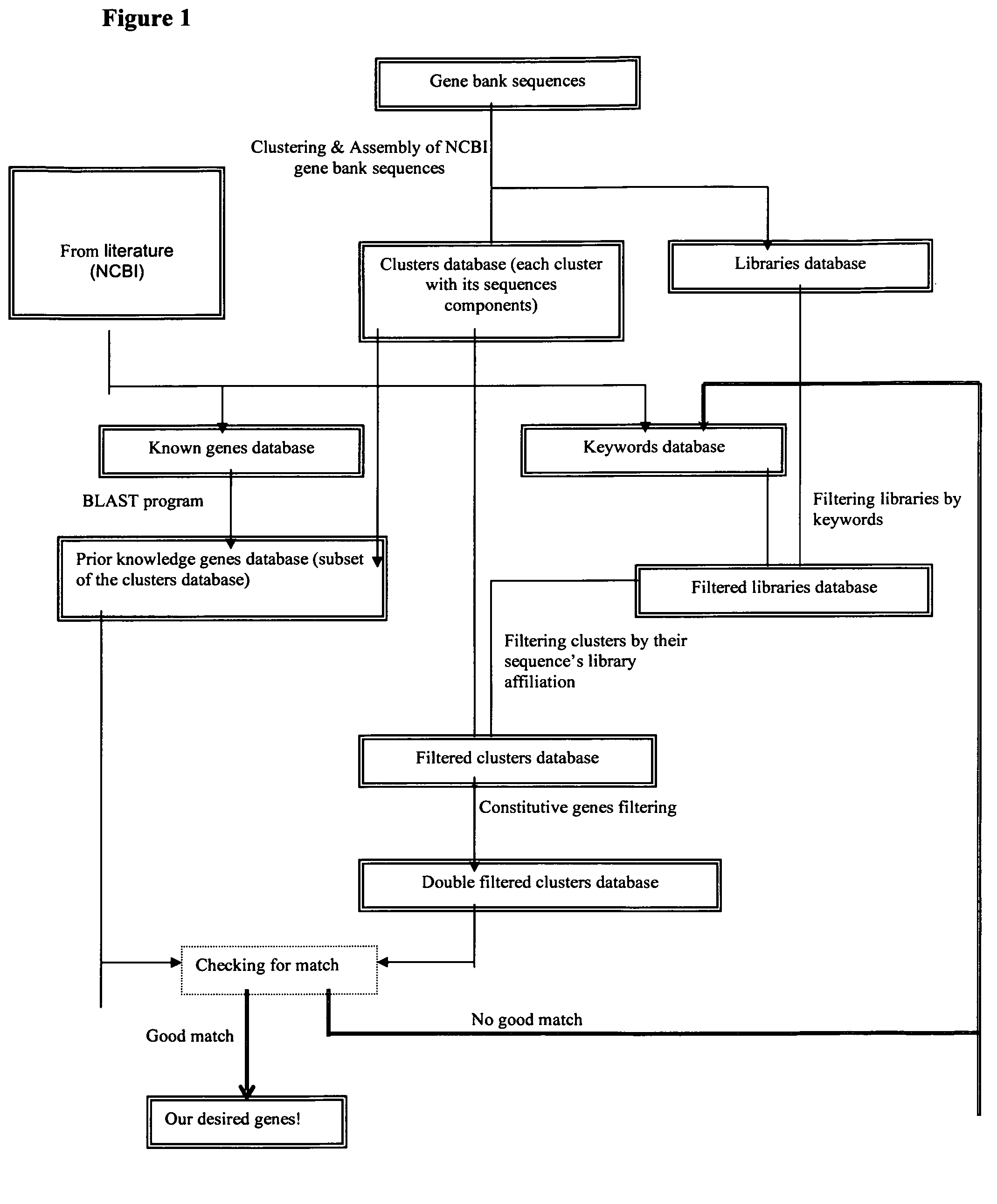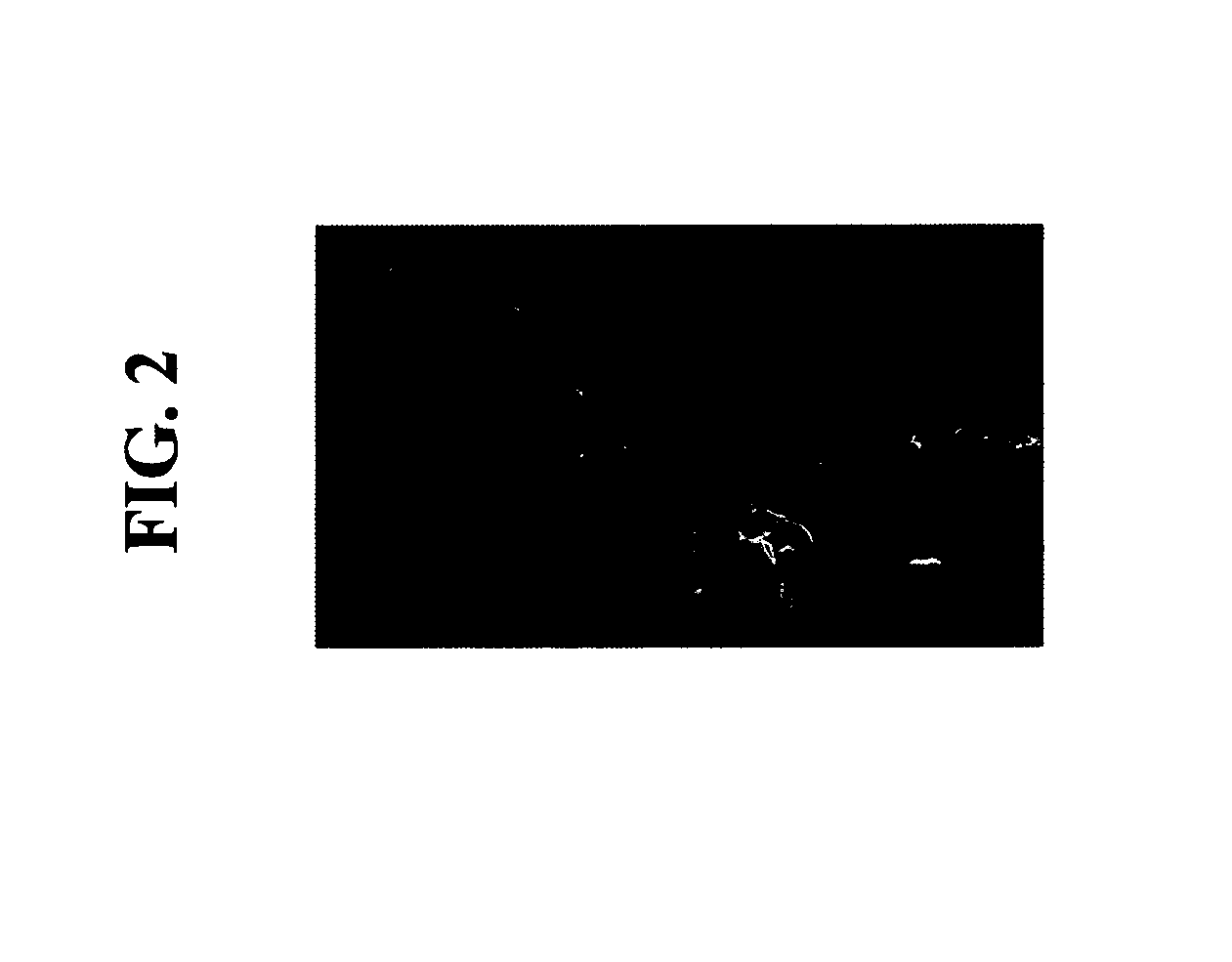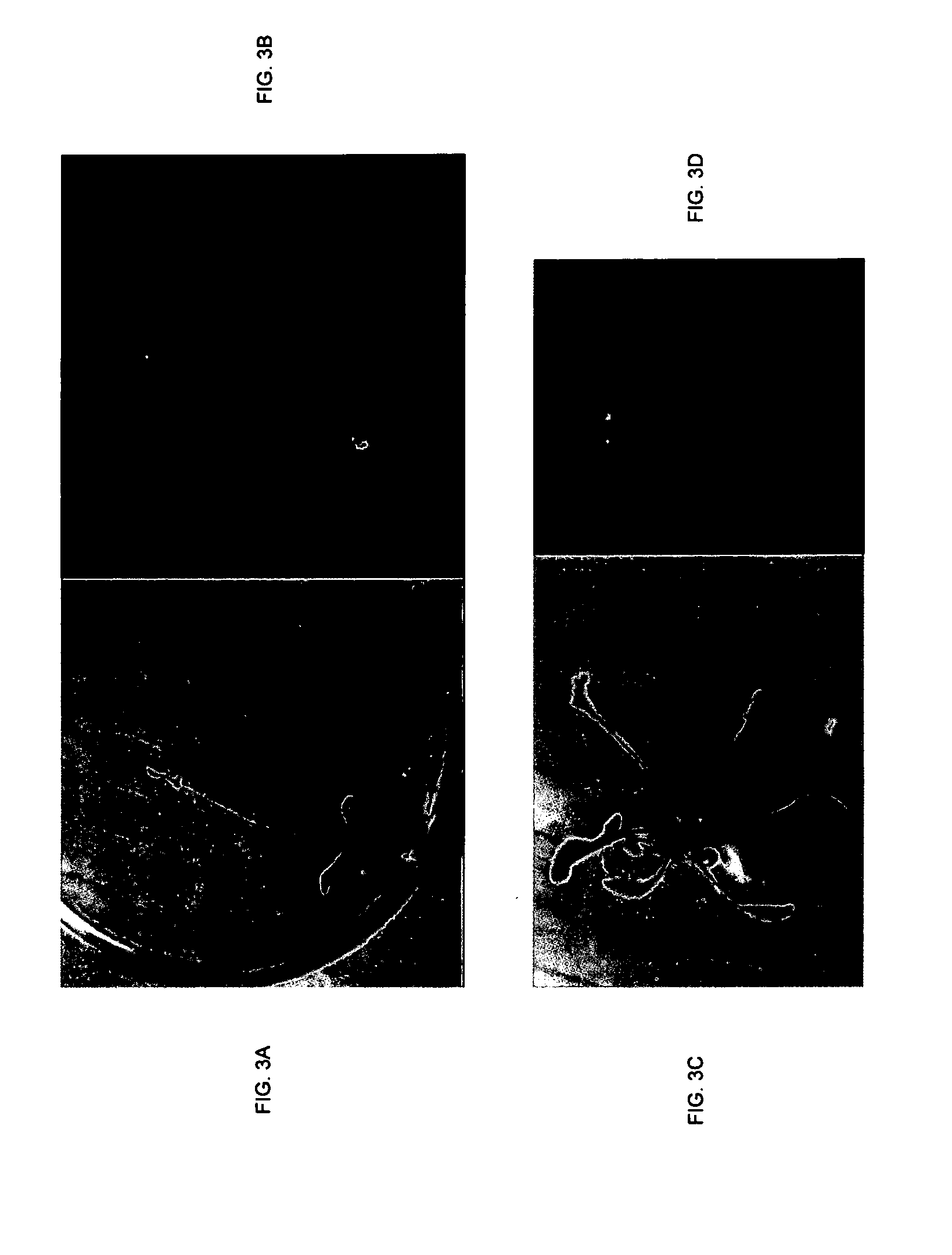Methods of increasing abiotic stress tolerance and/or biomass in plants
a technology of abiotic stress tolerance and biomass, applied in the field of methods of increasing abiotic stress tolerance and/or biomass in plants, can solve the problems of profound effects on plant development, growth and yield of most crop plants, and substantial damage to agricultural plants, and achieve the effect of increasing plants' toleran
- Summary
- Abstract
- Description
- Claims
- Application Information
AI Technical Summary
Benefits of technology
Problems solved by technology
Method used
Image
Examples
example 1
Identifying Putative Abiotic Stress Tolerance Genes
[0108]Putative abiotic stress-tolerance (ABST) genes were selected from NCBI databases of tomato expressed sequence tags (ESTs) and cDNAs. The database sequences were clustered and assembled using the LEADS™ software (Compugen). Clustering resulted in more than 20,000 clusters, each representing a different gene. An expression profile summary was compiled for each cluster by pooling all keywords included in the sequence records comprising the cluster. The clusters were then screened to include polynucleotides originating from libraries identified by keywords relating to ABST. The selected clusters were further filtered to exclude any cluster which included more than 100 ESTs per cluster and / or any cluster in which less than 50% of the sequences were annotated by ABST-related keywords.
[0109]Prior art ABST plant genes were identified from the publications of Quesada et al. (Plant Physiol. 130:951-963, 2002); Apse and Blumwald (Curr Op...
example 2
In-situ Validation / Expression Studies
[0129]The five genes listed in Table 1C were validated in situ as putative ABST genes by analyzing their expression profile in tomato plants under favorable, salt and drought stress conditions.
[0130]The expression studies were carried out on three tomato lines—sensitive tomato variety (Evoline 1), processing tomato line with moderate tolerance to salt (Evoline 3, also referred to herein as M82) and drought and high salt tolerant tomato line (Evoline 2). All lines were tested for several seasons for their levels of tolerance to salt and other soil stresses such as drought. All lines are commercially available from Evogene, Rehovot, Israel.
[0131]Methods
[0132]Salt induction: Salt stress induction was performed by introducing the roots of 14 days old tomato seedlings, of different tomato homozygote varieties, into a water bath which contained a solution of Hogland (comprising KNO3-8 mM, MgSO4-1 mM, KH2PO4-1 mM, and microelements, all dissolved in wat...
example 3
Isolation of ABS Tolerance Genes of the Present Invention
[0145]RNA was extracted from 4 week-old tomato root and leaf tissues using Tri Reagent (Molecular Research Center, Inc), following the protocol provided by the manufacturer (World Wide Web (dot) Mrcgene (dot) com / tri (dot) htm). Complementaly DNA molecules were produced from the extracted mRNA using M -MuLV reverse-transcriptase (RT) enzyme (Roche) and T16NN DNA primer, according to the manufacturer's instructions. The cDNA sequences set forth in SEQ ID NOs: 1, 4, 8-9 and 12-14, were amplified by PCR using the primers described in Table 11 below, with PFU proof reading DNA polymerase enzyme (Promega- World Wide Web (dot) Promega (dot) com / pnotes / 68 / 7381 07 / 7381 07 (dot) html), following the protocol provided by the manufacturer, Additional restriction endonuclease sites were added to the 5′ prime end of each primer to facilitate cloning of the ABS tolerance genes of the present invention in binary vectors.
[0146]
TABLE 11PCR pri...
PUM
| Property | Measurement | Unit |
|---|---|---|
| pH | aaaaa | aaaaa |
| time | aaaaa | aaaaa |
| time | aaaaa | aaaaa |
Abstract
Description
Claims
Application Information
 Login to View More
Login to View More - R&D
- Intellectual Property
- Life Sciences
- Materials
- Tech Scout
- Unparalleled Data Quality
- Higher Quality Content
- 60% Fewer Hallucinations
Browse by: Latest US Patents, China's latest patents, Technical Efficacy Thesaurus, Application Domain, Technology Topic, Popular Technical Reports.
© 2025 PatSnap. All rights reserved.Legal|Privacy policy|Modern Slavery Act Transparency Statement|Sitemap|About US| Contact US: help@patsnap.com



